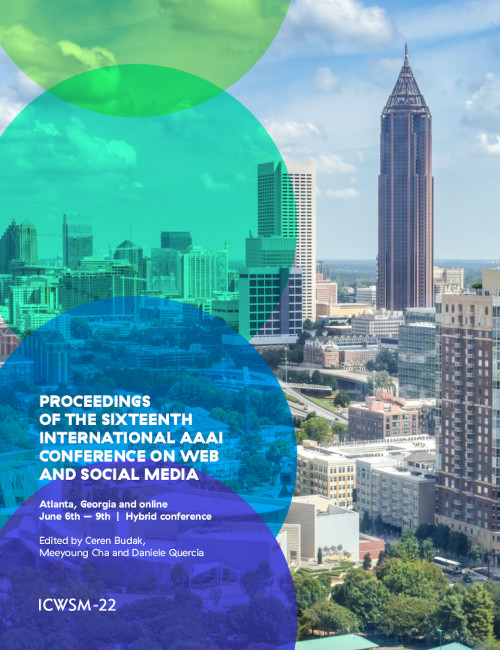To Recommend or Not? A Model-Based Comparison of Item-Matching Processes
DOI:
https://doi.org/10.1609/icwsm.v16i1.19272Keywords:
Trust; reputation; recommendation systems, Ranking/relevance of social media content and usersAbstract
Recommender systems are central to modern online platforms, but a popular concern is that they may be pulling society in dangerous directions (e.g., towards filter bubbles). However, a challenge with measuring the effects of recommender systems is how to compare user outcomes under these systems to outcomes under a credible counterfactual world without such systems. We take a model-based approach to this challenge, introducing a dichotomy of process models that we can compare: (1) a “recommender” model describing a generic item-matching process under a personalized recommender system and (2) an “organic” model describing a baseline counterfactual where users search for items without the mediation of any system. Our key finding is that the recommender and organic models result in dramatically different outcomes at both the individual and societal level, as supported by theorems and simulation experiments with real data. The two process models also induce different trade-offs: regularization improves the mean squared error of matches in both settings, but at the cost of less diverse (less radical) items chosen in the recommender model but more diverse (more radical) items chosen in the organic model. These findings provide a formal framework for how recommender systems may be fundamentally altering how we interact with content, in a world increasingly mediated by such systems.Downloads
Published
2022-05-31
How to Cite
Chang, S., & Ugander, J. (2022). To Recommend or Not? A Model-Based Comparison of Item-Matching Processes. Proceedings of the International AAAI Conference on Web and Social Media, 16(1), 55-66. https://doi.org/10.1609/icwsm.v16i1.19272
Issue
Section
Full Papers

